
Office 365 as an educational LMS? Microsoft video demos how it works
With as much time as I've spent in the education sector, as a student on one end and a high school IT specialist on the other, I know the landscape of educational learning management systems (LMS) decently well. And to be completely honest, it's a landscape rife with half-baked products delivering a fragmented me-too experience.
There's a lot to be desired from LMS environments, at least the one's I've played with in the last half decade. As a grad student at DePaul University (Chicago, IL USA) right now, I'm juggling between no less than three distinct platforms the school relies on.
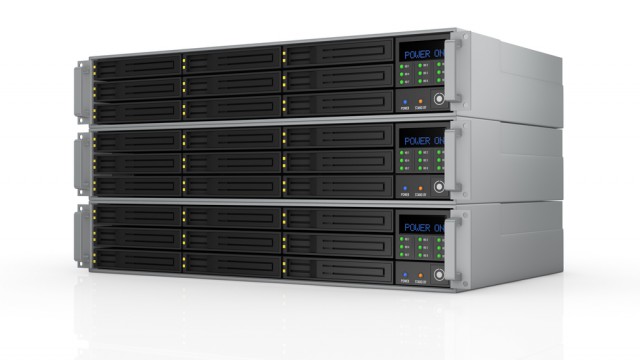
Windows Storage Spaces and ReFS: Is it time to ditch RAID for good?
If you're like most other IT pros I know, you're probably already cringing just at the title of this article. And I don't blame you one bit. How many times has Microsoft tried to usher in the post-RAID era? Every previous try has either been met with gotchas, whether it be performance roadblocks, technical drawbacks, or outright feature deprecation.
Native Windows drive mirroring (read: software RAID) has been in every Windows release since Win 2000. And for just as long, it has been plagued by sub-standard read/write performance which is why everyone who tried it always ran back to their hardware RAID.

From Google Apps to Office 365: Why my company ditched Google
You're probably expecting me to write a scathing exposé on how I've come to dislike Google Apps. That's quite far from the truth behind why we left Google. There is a lot more to the story than meets the eye. It goes way farther than just a decision based on boxes checked off on a spec sheet. After more than one month since making the move to Office 365 full time, I can comfortably say we made the right decision as a company.
And of anyone who can make an honest dissection of Google Apps against Office 365, I'd say I'm as well suited as anyone in the IT blogosphere to be passing such critical judgement. Notwithstanding my own personal usage of Gmail since 2005 and Google Apps for my IT company since early 2010, I've likewise been both a Google Apps Certified Trainer and Google Apps Certified Deployment Specialist for years now. And I've personally been involved in Google Apps transitions for numerous small and large organizations in both the public and private sectors. So to say that I've been deeply invested in Google-ism for some time now is an understatement.

The cloud in 2014: My 7 big predictions for next year
Just a short three years ago, skeptics called outgoing Microsoft CEO Steve Ballmer as utterly foolish when he uttered his three iconic words: "We're all in." Ballmer, of course, was referring squarely to Microsoft's position towards that 'cloud thing' which was rearing its head swiftly three years ago. Most of us were taken aback, since Microsoft seemed like the last company interested in shedding market share to non-traditional licensing.
Turn the page to 2013, and Microsoft is one of the cloud's most vocal champions -- with growth numbers to prove the cloud is a hot market and growing even hotter. In February 2013, Redmond re-launched Office 365 for Business, which was a big enough improvement over the suite's questionable former self that I gave it my two thumbs up finally. I'm not the only one seeing Office 365's about face; a full 37 percent of organizations surveyed recently are admittedly adopting Office 365 within 24 months.

Moving to VoIP? 10 things you need to know before ditching the PBX
If you haven't heard of VoIP (voice over IP) by now, you've been living under a bridge. This broad term blankets a ton of technologies, from things as simple as Skype and Google Hangouts, to more business-esque offerings like Lync and IP desk phones. "The cloud" is already passe and so 2012 -- the next hot item in tech is without a doubt unified communications, or simply UC, as the industry geeks call it. And chances are, based on the latest stats, your organization either has UC on the timetable or is already putting some form of it into place.
The numbers behind VoIP adoption and growth back up its reputation as the up and coming attraction in the way we do business. Mobile VoIP is poised to hit roughly 1 billion users within the next five years. Residential VoIP subscribers hit a massive tipping point of 203 million users as of the first half of this year. And Microsoft recently let loose that over 60 percent of 500+ seat enterprises surveyed are either deploying or in the planning stages for rolling out its Lync UC environment in the workplace.

4 big reasons why renting software as a subscription makes sense
It's a fairly typical situation these days: a small business approaches me with a need to replace an aging Exchange 2003 server and Office 2003 for 14 users. They want to compare purchasing their upgrades outright vs just renting them from Microsoft. The in-house server approach for email and Office software will run them roughly $10K USD before any consulting labor -- or they could opt to have us move them into Office 365 E3 for $280/month.
At face value, sure, you could say that the in-house approach pays for itself in just about 3 years compared to paying for Office 365 E3 over that period of time. But you're squarely forgetting about all the hidden nasties which I brought into full light in a previous article on the TCO of cloud vs on-premise technology.

6 areas Microsoft needs to improve in Office 365 for Business
When it comes to Office 365, some people think I'm too soft on Microsoft because I'm always writing about the good things I see in the service. And don't get me wrong, I think the platform is leagues better now than it was just a year ago. Just peruse some of the brutal honesty I wrote about Office 365 in the head to head piece I did against Google Apps back in mid 2012, and you may be shocked about my current viewpoint on the product.
Microsoft has indeed come a long way with the service as a whole. Before the 2013 edition of the suite, I found 365 to be a cluttered "me too" offering that did nothing to differentiate against Google Apps. My biggest gripe was that Microsoft was working too hard to cram desktop-first software into a cloud experience that felt half baked in the end. That notion got turned on its head earlier this year, and my feelings about the latest Office 365 for Business ecosystem are pretty positive overall.

Comparing cloud vs on-premise? Six hidden costs people always forget about
To cloud or not to cloud? It's a question a lot of my clients are asking more often, and is undoubtedly one of the biggest trends in the IT industry right now. SaaS, PaaS, IaaS, and soon to be DaaS -- all acronyms which represent offloading critical functions of some sort to the cloud or into virtualized environments. All the big cloud providers are guilty of throwing fancy numbers around to make their case. But do their trumpeted cost savings really add up?
You'll have to make it to the end of this piece to find out what I think about that personally. Because in all honesty, it depends. Too many business owners I work with make the same cost comparison blunders over and over again. Most of them are so blindly focused on raw face value costs -- the "easy ones" -- that they lose focus on the bigger picture, namely their TCO (total cost of ownership).
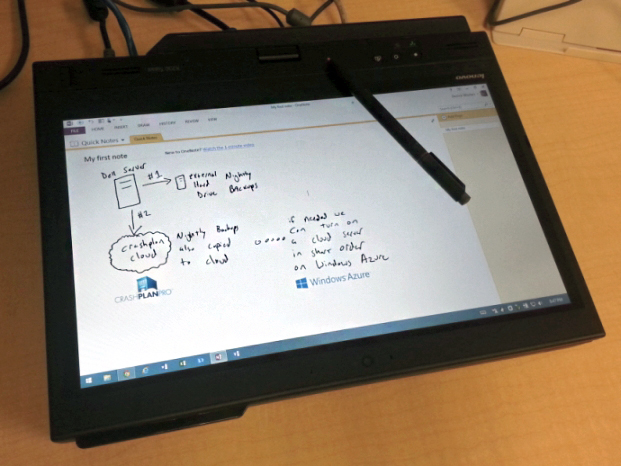
Windows 8.1 + OneNote: Why the digital notebook is finally a reality
In the mid-2000s, walking into a college classroom holding a laptop that came with a stylus for the purpose of note-taking was without a doubt out of place. The smartphone craze was still years away, and for all intents and purposes, touchscreens were relegated to two platforms: the Nintendo DS, and the last hurrah of Palm devices like the Treo. So when I sat in my undergrad classes taking notes in OneNote 2003 on my Thinkpad X41, people looked at me like I was an alien. Professors even asked from time to time whether I brought my paper notebook to class, so I wasn't playing with my "toy" the whole time.
Tablet PCs had a real personality dilemma way back then. Aside from OneNote, they were a sort of a pariah in the PC industry. Cool, sleek, powerful, and usually fairly light -- but they were held back in one major way: the operating system. I bless Microsoft for taking chances in areas where no one else dared, which undoubtedly led us to the current revolution being driven by Windows 8.1, but the first wave of Tablet PCs had real potential. The hardware was there, but the operating system was the large bottleneck by far.

How to easily migrate to SkyDrive from Google Drive, including your Google Docs
Google Docs and Google Drive were all I knew when it came to personal cloud document storage until this summer. I never got on the Dropbox bandwagon, and was so entrenched in the Google ecosystem that SkyDrive didn't interest me at first when it came out. While I have nothing personally against Google Drive, as it has served my company and myself quite well, I had to take a deep dive into SkyDrive territory to prepare for an Office 2013 class I taught this past summer. I was pleasantly surprised with the service, so much so that I began using it side by side next to Google Drive for my personal needs.
Fast forward to when Windows 8.1 went RTM, and I subsequently moved my primary Thinkpad X230 Tablet over to the new OS. One of the least publicized aspects of 8.1 has to be hands-down the tight integration between the OS and SkyDrive, meaning you didn't need a standalone app anymore to save/open files on the service. Some have called it Microsoft going too far, but I completely disagree. The service is 100 percent optional (you can still save locally as you would expect) and if you are using a local account instead of a MS account for your computer login on 8.1, the service is a moot point at best.

Why the Obamacare website Healthcare.gov had zero chance of success
If you wanted to build a case study in the perfect recipe for IT project disaster, you wouldn't have to look any further than the new official Obamacare website, Healthcare.gov. The site, which was supposed to be the official gateway for Americans to purchase cheap (now clearly up for debate) health insurance, has become an overnight poster child for just how bad the government can fumble a well-to-do technology implementation. The common symptoms are all present: budget overruns, too little time to test, poor design & planning, and you can take it from there.
So when the President came out for an impromptu press conference about the disaster this past Monday, it struck me a little odd at how he addressed the situation. He went on to describe the numerous problems plaguing the website, and then turned course to let us know that the feds were calling in the "best and brightest" in the tech industry to help solve the woes. Verizon was publicly mentioned -- which I'm not sure why that namedrop really mattered, since I didn't know Verizon's mobility expertise really had much of anything to do with a large federal website catastrophe.
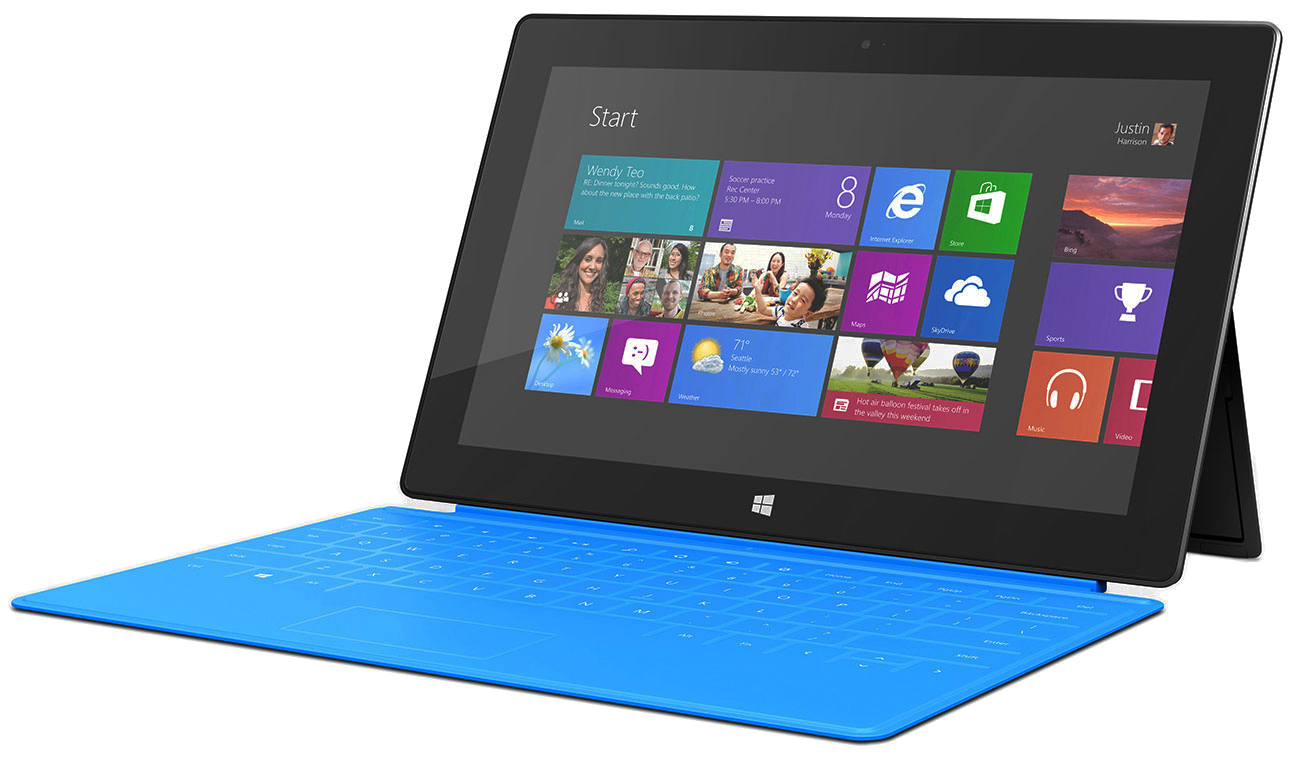
How we did it: A desk-less workforce built on Surface tablets and Windows RDS
One of the biggest problems I have with all those fancy iPad rollouts in corporate America is that they are merely patching a larger problem instead of solving it. Let's face it, nearly 60 percent of tablet buyers currently are not replacing their primary mobile devices -- they're merely supplementing them. Less than 9 percent truly see themselves replacing their laptops with tablets. If tablets are the future of mobile computing, there is a serious problem with their perception by non-consumption driven buyers.
When one of my customers approached us about helping them migrate an aging, near-crippled fleet of netbooks into modern tablets, I knew there had to be a better way than the "iPad standard". We initially toyed with the idea of getting tablets to use in conjunction with GoToMyPC or LogMeIn, but the recurring costs on such an approach started to balloon. Plus, a workforce that lives and dies by the full Microsoft Office suite would never adjust to a touch-only future.
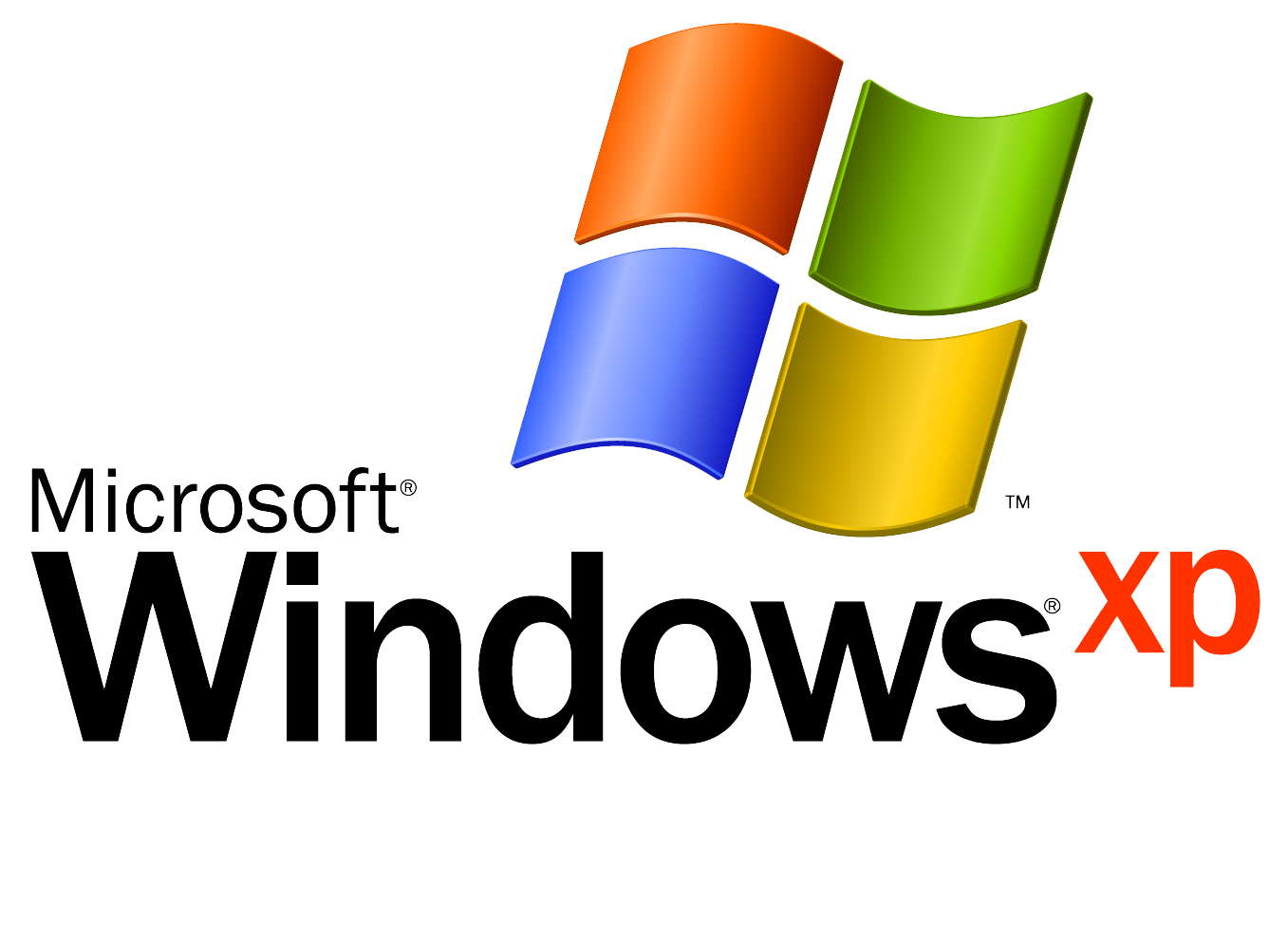
Legacy apps holding you hostage? 7 ways to safely migrate off Windows XP
"Windows XP will essentially have a 'zero day' vulnerability forever". These spot-on select words come from Tim Rains, who penned a stellar TechNet blog post back in August on the impending XP doomsday. That entry, aptly titled "The Risk of Running Windows XP After Support Ends April 2014" goes into a deep discussion about the underpinning reasons as to why it's so critical that organizations start moving their fleets off the now 12 year old OS.
I've been writing extensively about the end of XP for some time now myself, advocating customers begin their planning well ahead of the support sunset date.
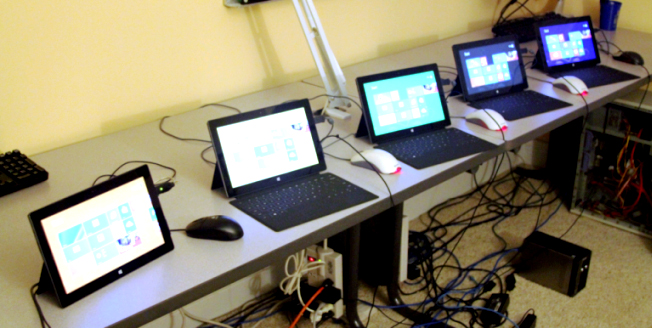
5 reasons Surface tablets blow away iPads for a mobile business workforce
My writing hand has been largely inactive for the past few weeks, but for very good reason. I've been using the time to wrap up a massive infrastructure overhaul for one of my larger commercial customers, including the rollout of Surface RT tablets to replace a fleet of aging netbooks for a mobile workforce. Tablets used to be relegated to the "PC-plus" category of companion gadgets (I'm looking at you, iPad), but my latest client project proves that with the right hardware, a mobile business team can truly ditch legacy computers in favor of a single, compact endpoint device.
While I'm not going to to get into the nuts and bolts of how we did it -- I'm saving that discussion for a second follow-up piece -- I do want to cover some of the reasons that my customer and I decided that Surface RT was the perfect platform for a mobile work team. Too much of the technology press is busy glossing over tech specs and fashion design scores for the latest tablets on the market, and not enough emphasis is being placed on the capabilities of one device over another.
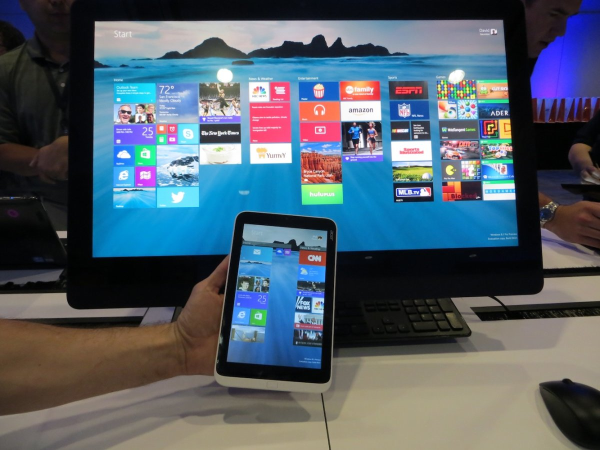
Windows 8.1 for work: 27 great new features aimed at the office
The countdown to Windows 8.1 is officially on. Whoever thinks that Windows 8.1 is squarely a consumer-centric release is heavily mistaken. After spending a month with Windows 8.1 Pro on my Thinkpad X230 Tablet, I can definitively say that Windows 8.1 is shaping up as a rock-solid option for the enterprise. I've previously written about why businesses should have been considering Windows 8 for their next upgrade cycles. With 8.1, Microsoft's latest OS is a service pack on more than a few steroids.
By any measure, I've been a vocal, bullish early adopter of Windows 8. My day to day consulting work for customers doesn't allow me to stay stuck on previous generations of Windows. Even if I did prefer Windows 7, my mixed client base is moving to 8 whether I like it or not. I need to be prepared for the questions and troubleshooting that ensues, which means I need to be their resident Windows 8 expert.

